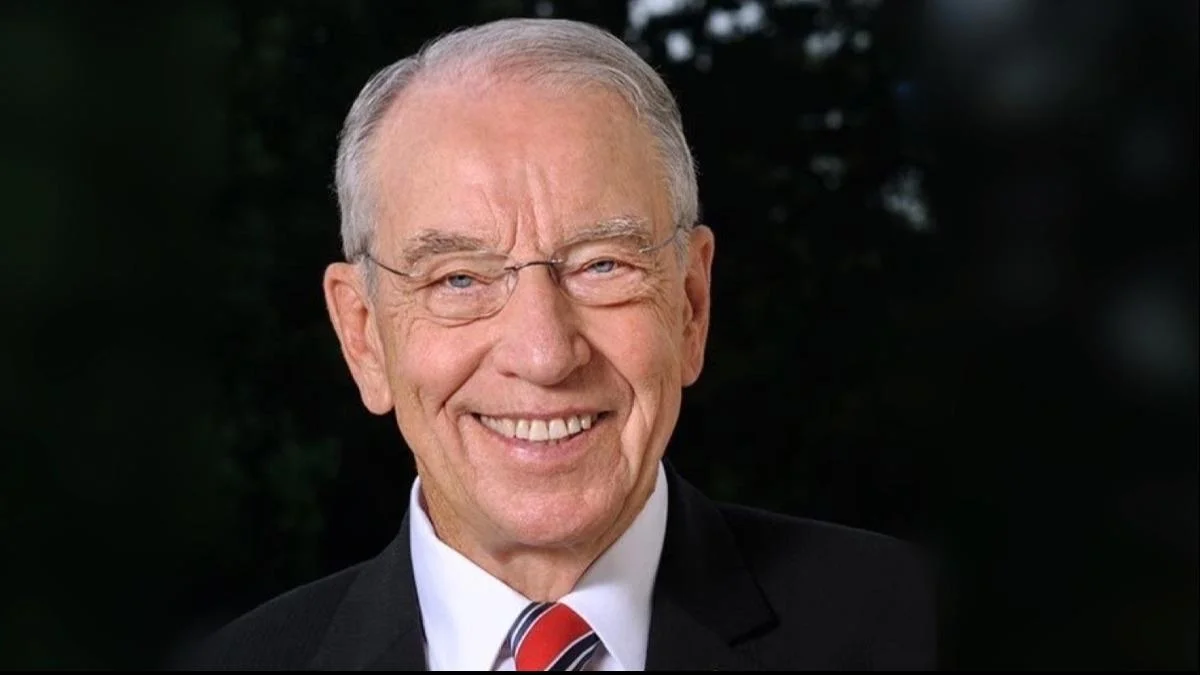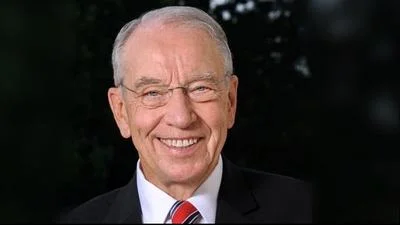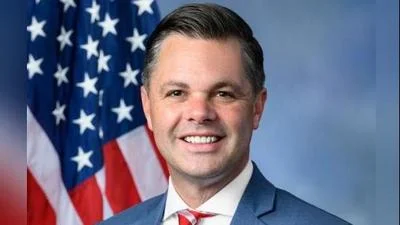Sen. Chuck Grassley - US Senator for Iowa | Official U.S. House headshot
Sen. Chuck Grassley - US Senator for Iowa | Official U.S. House headshot
Senate Judiciary Committee Chairman Chuck Grassley (R-Iowa) questioned Attorney General Pam Bondi during a Department of Justice (DOJ) oversight hearing in Washington. The session focused on concerns about the DOJ’s conduct under the Biden administration, the handling of grants, and support for public safety officers.
Grassley called on Bondi to address what he described as the “weaponization of government,” referencing the Arctic Frost investigation, which reportedly targeted eight Republican senators. He asked Bondi to clarify what steps the DOJ is taking to hold its own personnel and those at the FBI accountable for misconduct related to this case.
Bondi responded that she would provide a written follow-up regarding actions taken against DOJ and FBI personnel involved in Arctic Frost. She stated, "...Operation Arctic Frost was an unconstitutional, undemocratic abuse of power. During Arctic Frost, the FBI also placed 92 linked Republican individuals and Republican groups, such as Charlie Kirk's Turning Point, on their list. This is the kind of conduct that shattered the American people's faith in our government, as I said in my opening statement. We are ending this weaponization. Our FBI is targeting violent criminals, child predators and other law breakers, not sitting senators who happen to be from the wrong political party."
Grassley further questioned whether top officials—including Attorney General Merrick Garland, former FBI Director Wray, or President Biden’s White House—were aware of or approved the targeting of Republican senators.
The hearing also addressed DOJ grants and resource allocation. Grassley criticized what he called a “bloated bureaucracy” and raised concerns about grants being used for partisan projects rather than serving Americans broadly.
Bondi replied that during her appearance at budget hearings she had acknowledged mistakes in grant terminations and described new processes to review appeals: "During my appearance at the Department's budget hearings, I acknowledged that some grants were mistakenly terminated, and we have made a process to correct that. All grant termination appeals will be individually considered for alignment with our current policies, which are strengthening law enforcement and protecting victims." She noted that out of 5,800 discretionary grants reviewed by the Office of Justice Programs, 376—about seven percent—were terminated; 18 awards have since been reinstated following appeals.
On resource reallocation within DOJ agencies like the FBI and DEA, Grassley challenged criticism that shifting resources toward immigration enforcement has harmed law enforcement efforts elsewhere. Bondi defended these changes: "Every day our FBI, [Drug Enforcement Agency], [Department of Alcohol, Tobacco, Firearms and Explosives] agents, and now, U.S. Marshals working on a task force with Homeland Security, are out there keeping Americans safe and getting illegal aliens out of our country, many of whom have committed violent crimes in this country." She cited successful joint operations in Washington D.C., with plans to expand similar initiatives nationwide.
Grassley also highlighted delays and complaints within the Public Safety Officers’ Benefits program (PSOB), which provides benefits to law enforcement officers and first responders injured or killed on duty. He referenced oversight findings showing claims sometimes take thousands of days to resolve and reports from applicants feeling disrespected by government staff.
Bondi assured Grassley: "... This Department of Justice will treat everyone with respect, and we will do everything in our power to help citizens of this country. Please reach out to us with any individual cases, and I will personally look at them for you."






 Alerts Sign-up
Alerts Sign-up